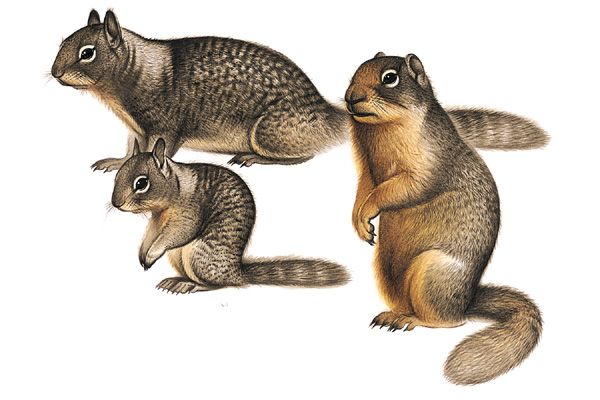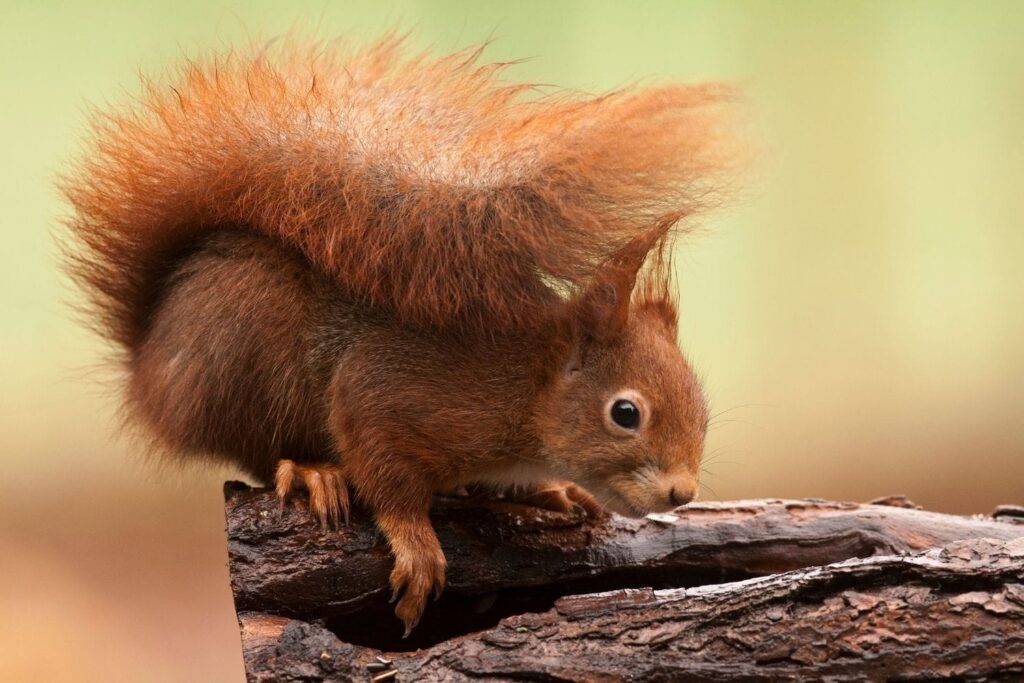Squirrels are one of the most commonly recognized and charismatic creatures in urban and rural landscapes alike.
With their fluffy tails and energetic antics, they often bring a sense of liveliness to parks, forests, and backyards.
However, when it comes to understanding these small mammals, one question that many people wonder is: How long do squirrels live?
The lifespan of squirrels varies significantly depending on their species, environment, and the many factors that can impact their survival.
While their life expectancy in the wild is often much shorter than in captivity, squirrels have developed unique ways to adapt to and navigate their surroundings.
Let’s explore the lifespan of squirrels in more detail, including the factors that affect it and how they manage to thrive in such diverse habitats.
Types of Squirrels and Their Lifespan
There are over 200 species of squirrels, but they are generally divided into three main categories: tree squirrels, ground squirrels, and flying squirrels.
Each type has its own expected lifespan, which can be influenced by environmental and predatory factors.
- Tree Squirrels: These are the most commonly recognized squirrels, often seen in forests, parks, and urban areas. Species like the Eastern Gray Squirrel, Fox Squirrel, and Red Squirrel fall into this category. On average, a tree squirrel lives about 6 to 12 years in the wild, but few make it past their first year due to predators and other dangers. In captivity, where threats are minimized, tree squirrels can live up to 18 years.
- Ground Squirrels: Ground squirrels, such as the California Ground Squirrel, typically live a bit shorter lives. In the wild, their lifespan is generally 3 to 6 years, largely due to exposure to predators like hawks, snakes, and larger mammals. In captivity, ground squirrels can live up to 10 years if properly cared for.
- Flying Squirrels: These small nocturnal creatures are known for their ability to glide from tree to tree. Flying squirrels typically live around 5 to 10 years in the wild, although in a safe and controlled environment, they can live up to 13 years.
Factors That Affect Squirrel Lifespan
While squirrels can live for a number of years, their survival rate is highly dependent on several factors. Let’s look at some of the key elements that influence a squirrel’s lifespan.
- Predation: One of the biggest threats to squirrels is predation. Birds of prey such as hawks, owls, and eagles are notorious squirrel hunters. Mammalian predators like foxes, coyotes, and raccoons also pose a significant risk. Additionally, domestic pets such as cats and dogs can shorten a squirrel’s life expectancy.
- Human Interaction: Squirrels living in urban environments face unique challenges, including traffic, poisoning, and habitat loss due to construction. However, these urban squirrels often have access to abundant food supplies, which can help them survive longer than their wild counterparts.
- Disease: Squirrels are susceptible to a variety of diseases, including mange, parasites like ticks and fleas, and respiratory infections. These health issues can reduce their lifespan, especially in the wild where veterinary care is not available.
- Food Supply: The availability of food plays a crucial role in a squirrel’s life expectancy. Squirrels primarily feed on nuts, seeds, fruits, and occasionally fungi. Harsh winters or food scarcity can lead to malnutrition, which impacts their health and longevity.
- Climate and Habitat: Squirrels that live in areas with harsh winters may not live as long, especially if they cannot find enough food to survive the cold months. Conversely, in warmer climates with fewer environmental stressors, squirrels may live longer. The habitat also plays a role; squirrels living in densely wooded areas with plenty of shelter and food typically fare better than those in urban or suburban environments.
Lifespan of Squirrels in Captivity
When squirrels are kept in captivity, their life expectancy is typically much longer than in the wild.
In controlled environments where they have a constant supply of food, shelter, and protection from predators, squirrels can live well into their teens.
The lifespan of squirrels in captivity can be influenced by the care they receive, including diet, exercise, and overall health management.
However, it is important to note that keeping squirrels as pets is not recommended in most places, as they are wild animals with specific needs.
Rehabilitating injured or orphaned squirrels is sometimes necessary, but in most cases, it’s best to allow them to live in their natural habitat.
The Squirrel Life Cycle
A squirrel’s life cycle typically begins with birth, which usually occurs in spring or summer. Female squirrels give birth to 2-6 babies after a gestation period of about 40 to 45 days.
The young are born blind and helpless and stay in the nest (or “drey”) for the first few weeks of life.
By the time they are 8 to 10 weeks old, young squirrels begin venturing out on their own, though they stay close to their mother for several months.
Squirrels reach sexual maturity at around 10 to 12 months of age, with females typically reproducing twice a year.
The young squirrels born from these mating cycles continue the process of growth and reproduction, creating a cycle that can last several generations in the same habitat.

What Happens When a Squirrel Dies?
When squirrels die, they often play a critical role in the ecosystem.
As decomposers, their bodies provide nourishment to other wildlife, from scavengers like raccoons and vultures to insects that break down organic matter.
Additionally, squirrels are an important part of the food chain, providing sustenance for larger predators.
Their activities, such as burying nuts, also help to maintain the health of forests and other ecosystems.
Conclusion
Squirrels are fascinating creatures with an average lifespan that ranges from a few years to more than a decade, depending on the species and environmental factors.
While their lives in the wild are often short due to predators, disease, and food scarcity, those who survive can live for many years.
Whether they are tree squirrels darting through the forest canopy or ground squirrels making burrows in the dirt, these energetic mammals play a vital role in ecosystems around the world.
By understanding the factors that influence their lifespan, we can better appreciate the remarkable ways squirrels navigate their world.



